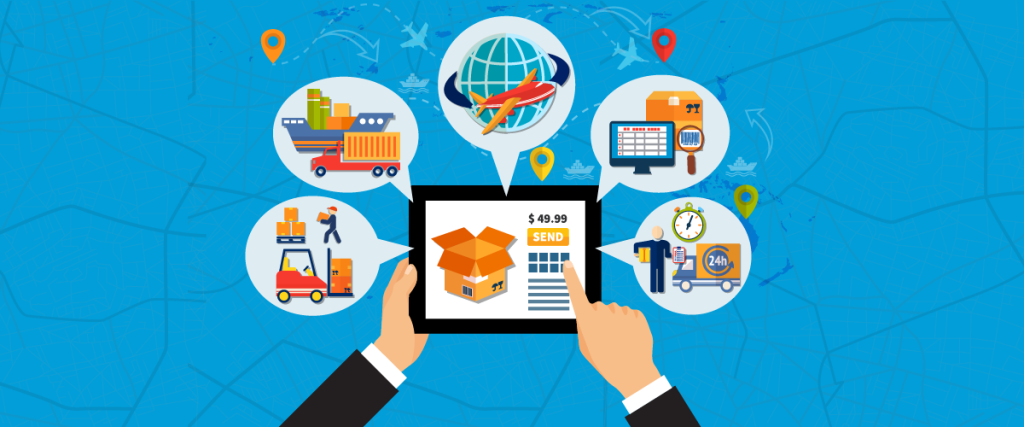Comparing Top TMS Solutions: SAP, Oracle, Manhattan, and More
In the rapidly evolving logistics and supply chain management world, selecting the right Transportation Management System (TMS) can significantly impact cost control, visibility, and operational efficiency. With numerous enterprise-level TMS providers on the market, it’s essential to compare the top players—SAP, Oracle, Manhattan Associates, and others—before making a strategic investment.

What Is a Transportation Management System (TMS)?
A TMS is software that helps businesses plan, execute, and optimize the physical movement of goods, both inbound and outbound. It often integrates with ERP, WMS, and carrier systems, enabling real-time tracking, rate shopping, route optimization, freight audit, and analytics.
SAP Transportation Management
Strengths:
- Seamless integration with SAP S/4HANA and SAP ERP
- Advanced automation for freight planning and execution
- Strong support for global logistics, including multimodal transport
- Scalable for large enterprises

Best for: Large organizations already using SAP environments or operating globally across complex supply chains.
Oracle Transportation Management (OTM)
Strengths:
- Powerful analytics and AI-driven optimization
- Excellent visibility and carrier connectivity
- Strong documentation and compliance support
- Cloud-based and modular

Best for: Businesses seeking highly configurable TMS with robust performance across different industries, including retail, manufacturing, and 3PL.
Manhattan Active Transportation Management
Strengths:
- Cloud-native, microservices architecture
- Real-time visibility and event management
- Predictive analytics for disruption handling
- Integrated with Manhattan’s WMS and Order Management

Best for: Retailers and eCommerce businesses requiring high adaptability, flexibility, and scalability in omnichannel logistics.
Other Noteworthy TMS Providers
Blue Yonder (formerly JDA)
- Strong AI and ML capabilities
- Excellent forecasting and demand planning
- Ideal for retail and CPG sectors
MercuryGate
- Cost-effective for mid-sized businesses
- Rapid deployment with strong multimodal support
- Highly customizable for niche logistics operations
Descartes Systems
- Best known for last-mile delivery and route planning
- Useful for field service, home delivery, and distribution
- Easy to use and integrates well with smaller ERPs
Feature Comparison Table
| Feature | SAP TM | Oracle OTM | Manhattan TM | Blue Yonder | MercuryGate |
|---|---|---|---|---|---|
| Cloud-Native | Partial | Yes | Yes | Yes | Yes |
| Global Multi-modal Support | Excellent | Excellent | Very Good | Good | Good |
| Real-time Visibility | Yes | Yes | Yes | Yes | Partial |
| AI/ML Optimization | Limited | Yes | Yes | Yes | Limited |
| Best Fit For | Enterprises | Versatile Use | Retail/Ecom | Retail/CPG | SMBs/3PL |
Choosing the Right TMS: Key Considerations
Before selecting a TMS, businesses should evaluate:
- Current systems and integration requirements
- Volume and complexity of shipments
- Geographic scope (domestic vs. international)
- Need for last-mile vs. long-haul optimization
- Budget and internal IT capabilities
PostalParcel.com recommends conducting a complete ROI analysis and demoing at least 2–3 systems before committing.
Final Thoughts
There’s no one-size-fits-all TMS. SAP TM excels in large enterprise ecosystems, Oracle OTM leads in flexibility and analytics, while Manhattan and Blue Yonder shine in retail and predictive logistics. MercuryGate and Descartes are ideal for leaner operations needing agility and fast onboarding.
At PostalParcel.com, we specialize in helping logistics providers and retailers choose and implement the best transportation technologies. Whether you’re upgrading from spreadsheets or replacing a legacy TMS, our resources and consultants can support your digital logistics transformation.
Industry Insights
news via inbox
Nulla turp dis cursus. Integer liberos euismod pretium faucibua








